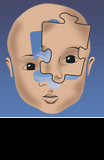OUH staff member saved by I.M.P.S. trainer

A recent life-threatening incident with a member of OUH staff and the timely intervention one of our Injury Minimization Programme for Schools (I.M.P.S.) trainers highlighted the importance of life emergency skills.
Lesley Savage, a staff member at OUH, was enjoying her lunch in the sun outside the John Radcliffe Hospital by herself and suddenly started choking on her food. Here’s her account of the incident:
Lesley recalls: "I had taken one mouthful of chicken and realised something was not right. I started coughing, suddenly realising the food was stuck in my throat, and coughing didn't appear to be doing anything.
"I remember from my nursing training in emergencies to try to keep the casualty coughing and keep them calm. I told myself 'don't panic' but then I couldn't breathe in – to me it felt like an eternity. The next moment the chicken dislodged and I could breathe again, the relief was immense."
Fortunately, Lynnie Cribben was sitting on the table behind Lesley and jumped in to intervene. Lynnie is a trainer at I.M.P.S, and her lifesaving training came into its own.
Lynnie said: "After an appointment at the JR I was sitting outside the café having a coffee. All the tables were full of people having their lunch and I noticed a lady sitting a few tables away wearing her blue scrubs. She obviously worked at the hospital.
"Lesley started coughing heavily and I found myself watching her as I could see she had been eating, and her cough sounded different to a normal chesty cough. After several harder coughs Lesley held her chest, her face turning very red. I figured she was having trouble breathing and by now she was bent over in her chair.
"I ran over and immediately gave her four hard back blows. Lesley coughed and, sounding as if something had dislodged, eventually took a breath.
"I remember her scared eyes as she grabbed my hand looking shocked and relieved all at the same time."
Both Lesley and Lynnie reflect on the importance of not only learning life emergency skills, but also being proactive to intervene whenever one comes across anyone who could be in need – timely intervention could be the difference between life and death. If you are not sure what to do, calling for help is also useful.
Lesley said: "This experience has really shaken me and weeks on it’s still very present in my memory. I am so thankful for Lynnie. It all happened so quickly and without her intervention goodness knows what the outcome could have been. She saved my life – she is my guardian angel.
"I am forever grateful to her for her intervention and lack of fear to get involved, otherwise who knows what may have happened.
"I cannot stress how important it is for everyone to be aware of lifesaving skills – don't shy away from helping others, never be afraid to intervene whether it's due to fear of hurting someone, or not knowing what to do. Follow your instincts, every little helps, even getting attention of others for help is important as time is of the essence."
Lynnie said: "The whole incident took just a few moments, and fortunately for Lesley I didn’t need to do abdominal thrusts, which wouldn’t have been easy with her in her chair. But the scariest thing for her was no-one close by noticed her choking or coughing, and listening to her afterwards it felt like an eternity while her airway was completely blocked.
"It has made us both reflect on how important it is to know lifesaving skills – taking notice of anybody we believe to be in trouble, and if we don’t know what to do then shouting for help is the next best thing."
Lynn Pilgrim, Project Manager for I.M.P.S, said: "I.M.P.S. is extremely proud of Lynnie's quick actions which led to saving the life of Lesley. This incident highlights the need for everyone to be equipped with emergency life skills and to also take notice of their surroundings, especially as choking can happen silently.
"I.M.P.S. teaches 5,000 primary school children each year how to cope in an emergency situation, and we are delighted to be part of the OUH delivering this essential service."
What is I.M.P.S?
Accidents are the most common cause of death in young people and many of these accidents and injuries are preventable.
The aim of I.M.P.S. is to reduce death and disability as a result of accidents by empowering young people to take personal responsibility for their own risk management and equipping them with the skills to cope in an emergency situation. The programme targets children between the ages of 10 and 11 who statistically are at greatest risk.
Choices for life involve taking risks and children should understand how to make risks safer by being aware of the consequences of their action. I.M.P.S. gives children this choice with a four-part injury prevention education programme.
• Curricular linked work to identify, assess and manage risks within their day-to-day experiences.
• Learning emergency life skills within their school environment or during an I.M.P.S. visit to a local hospital setting.
• Follow up activities at school and at home.
• Evaluation of skills and knowledge are measured using an online quiz both pre and post intervention with I.M.P.S.
Along with other first aid interventions, I.M.P.S. teaches every child how to recognise choking and how to administer first aid treatment. I.M.P.S also covers other emergency situations the children or any of us may come across, such as burns and scalds, cuts and bleeding, concussion, and cycle safety.




























































